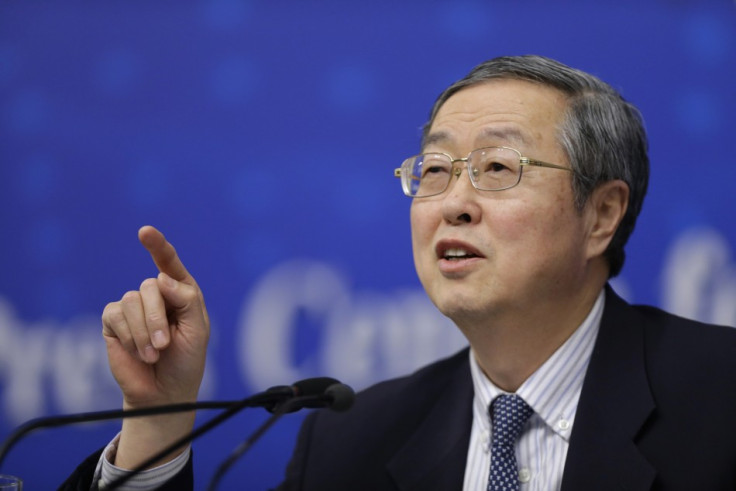China Sees No Big Changes to Economic Policy in Near Term

China is not aiming to make big changes to its current economic policy in the second half of 2013, despite its weak economic indicators, but the country may "fine-tune" it as needed.
According to an interview with state televisions, the People's Bank of China (PBoC) Governor Zhou Xiaochuan said that the country will continue to implement the official "prudent" monetary policy stance, in the near term.
Zhou added that the country's overall liquidity is ample and it will be unaffected by short-term events. He said China is still preparing to liberalise deposit rates.
The world's second-largest economy wants to keep the yuan stable at an equilibrium level, added Zhou. But he expects the currency to rise or fall within a range in line with the country's liberalisation of currency trading, freeing its currency to market forces of demand and supply.
Weak Economic Growth
China's economic growth rate has slowed down in the second quarter to 7.5% from 7.7% in the previous quarter.
However, the central bank is reluctant to ease benchmark interest rates, due to inflation fears, despite calls for the country to boost growth.
In the absence of pro-growth measures from China, major forecasters have lowered their outlook for the country.
The government has set a target of 7.5% growth for fiscal year 2013, the lowest rate of expansion in more than two decades. However, the country noted that it is ready to accept an even lower rate of growth, for the sake of a more sustainable growth model for the future.
Consumer prices rose 2.7% year-on-year in July, the same as in the previous month, according to the government's National Bureau of Statistics (NBS). In March, the government announced that it intends to keep the annual inflation rate at 3.5% or lower.
Authorities have been trying to keep the costs of consumer goods down, cracking down on corruption and price-fixing in different sectors, including pharmaceutical and food. China this week fined six dairy companies including Mead Johnson Nutrition Co. and Danone for price fixing.
Concerns over House-Price Inflation
Due to speculation that the government will abstain from property cooling measures, China's new home prices increased the most since January 2011 in its four major cities.
House prices jumped 17% in Guangzhou and Shenzhen, while they rose by 14% in Beijing and Shanghai, according to the NBS. Furthermore, 69 out of 70 cities tracked by the NBS showed house price increases for July.
China's over-heated property sector has played a key role in its fragile growth.
The country has repeatedly failed to keep its house price rises under control, despite a series of curbing measures, primarily due to a relaxing of property rules by local governments. Authorities wanted more revenue by selling land to developers.
Analysts do not expect any major policy moves from the government ahead of the Communist Party's annual plenum anticipated in October.
© Copyright IBTimes 2025. All rights reserved.






















